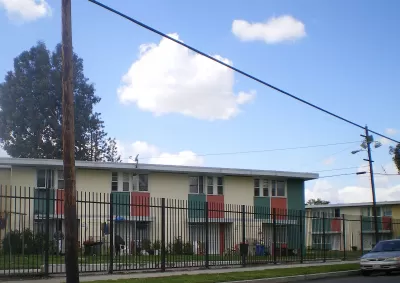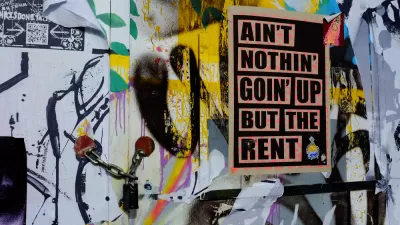Large institutional investors are changing the realities of the U.S. rental housing market, but a lack of information makes it hard for cities to respond.

“Understanding who owns rental units is a first step toward ensuring a supply of affordable, quality rental stock—and to supporting landlords—but very little data on rental property ownership exist,” according to an article by Fay Walker and Eleanor Noble for the Urban Institute.
Walker and Noble help fill the gap, however, using publicly available data to examine rental property ownership and analyze ownership patterns in Minneapolis, Pittsburgh, and Philadelphia to produce several key findings: small landlords own a shrinking share of the rental units in these cities, large institutional ownership makes it harder to discern who owns rental units, and more research is necessary to generate solutions that will benefit renters and landlords.
The last point is really the key call to action of this article: “As the landscape of landlords changes in cities nationwide, it will be increasingly important for municipalities to understand what tools they have to support small landlords and, by extension, their tenants.”
A lot more data on the housing markets of these three cities and the larger United States are included in the source article below.
FULL STORY: Ensuring Safe and Affordable Housing Stock Starts with Understanding Who Owns Rental Units

Trump Administration Could Effectively End Housing Voucher Program
Federal officials are eyeing major cuts to the Section 8 program that helps millions of low-income households pay rent.

Planetizen Federal Action Tracker
A weekly monitor of how Trump’s orders and actions are impacting planners and planning in America.

Ken Jennings Launches Transit Web Series
The Jeopardy champ wants you to ride public transit.

Washington Legislature Passes Rent Increase Cap
A bill that caps rent increases at 7 percent plus inflation is headed to the governor’s desk.

From Planning to Action: How LA County Is Rethinking Climate Resilience
Chief Sustainability Officer Rita Kampalath outlines the County’s shift from planning to implementation in its climate resilience efforts, emphasizing cross-departmental coordination, updated recovery strategies, and the need for flexible funding.

New Mexico Aging Department Commits to Helping Seniors Age ‘In Place’ and ‘Autonomously’ in New Draft Plan
As New Mexico’s population of seniors continues to grow, the state’s aging department is proposing expanded initiatives to help seniors maintain their autonomy while also supporting family caregivers.
Urban Design for Planners 1: Software Tools
This six-course series explores essential urban design concepts using open source software and equips planners with the tools they need to participate fully in the urban design process.
Planning for Universal Design
Learn the tools for implementing Universal Design in planning regulations.
Heyer Gruel & Associates PA
Ada County Highway District
Institute for Housing and Urban Development Studies (IHS)
City of Grandview
Harvard GSD Executive Education
Toledo-Lucas County Plan Commissions
Salt Lake City
NYU Wagner Graduate School of Public Service





























